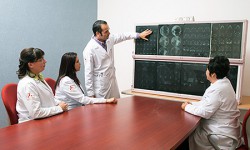
The benefits of daily exercise may be particularly beneficial to those undergoing cancer treatment and cancer survivors. At Issels® Center for Integrative Immuno-Oncology, we find that cancer treatments often work best when in conjunction with the overall health and wellbeing of the patient.
Dr. Colleen Doyle of the American Cancer Society recently explained the benefits of exercise to HemOnc Today. Below is a synopsis of her informative comments.
Should Cancer Patients Exercise?
Patients should discuss their condition, treatment, and previous activity levels with a physician before beginning physical activity. Those who exercised regularly before may need to place limits on exertion levels and duration. If you seldom exercised prior to diagnosis, minimal stretching and walking may be best.
Other considerations include the side effects of treatment and increased risks in those with compromised immune systems. You may need to avoid the germs at public gyms, for example. Those with weakened muscles and bones may need supervision when beginning exercise.
Benefits of Physical Activity During and After Cancer Treatment
For those dealing with cancer, exercise benefits the musculoskeletal system and may enhance one’s physical wellbeing and capabilities. Exercise also reduces stress levels, improving their mood and overall outlook in life. It can also fend off the fatigue of illness and treatment with a boost to energy levels.
Exercise can also bring a sense of normalcy and activity to life. One might consider physical activity to be a much-needed break from the rigors of undergoing treatment.
For many, exercise may be an important method of improving survivorship and quality of life. For more information about holistic and individualized cancer treatment, contact Issels® Center for Integrative Immuno-Oncology.





